
-
Understanding primary immunodeficiency (PI)

Understanding PI
The more you understand about primary immunodeficiency (PI), the better you can live with the disease or support others in your life with PI. Learn more about PI, including the various diagnoses and treatment options.
-
Living with PI
-
Addressing mental health
-
Explaining your diagnosis
- General care
- Get support
- For parents and guardians
-
Managing workplace issues
- Navigating insurance
-
Traveling safely

Living with PI
Living with primary immunodeficiency (PI) can be challenging, but you’re not alone—many people with PI lead full and active lives. With the right support and resources, you can, too.
-
Addressing mental health
-
Get involved

Get involved
Be a hero for those with PI. Change lives by promoting primary immunodeficiency (PI) awareness and taking action in your community through advocacy, donating, volunteering, or fundraising.
-
Advancing research and clinical care
-
Grants
-
IDF surveys
-
Participating in clinical trials
-
Diagnosing PI
-
Consulting immunologist
-
Clinician education

Advancing research and clinical care
Whether you’re a clinician, researcher, or an individual with primary immunodeficiency (PI), IDF has resources to help you advance the field. Get details on surveys, grants, and clinical trials.
-
Grants
Jakob Guziak somersaults on the sofa, rides his snowboard, and dances in front of the television in videos on social media. In a recent post, he dresses up like a doctor and examines his “patient,” dad Kamil Guziak, closely with his stethoscope.

While Jakob appears to be a healthy toddler on the outside, inside his cells struggle to protect him from infections. Jakob has adenosine deaminase severe combined immunodeficiency (ADA-SCID), which means his body doesn’t produce ADA, an enzyme that eliminates deoxyadenosine. Without ADA, toxic levels of deoxyadenosine molecules build up and cause T and B cells to die, preventing his immune system from functioning.
“He has an invisible disability,” said his mom, Paola Andrea Fernández de Soto Abdul-Rahim, who cares for Jakob in isolation at home.
Jakob receives weekly injections of enzyme replacement therapy (ERT) at home and monthly immunoglobulin (Ig) infusions in the hospital to treat his ADA-SCID. The ERT and Ig improve, but don’t fully restore, immune function.
As a result of the ADA-SCID, Jakob faces an additional health problem – his thymus, the organ responsible for making T cells, is failing. A year and a half ago, doctors informed Jacob’s parents that Jakob had only six months to a year to live before he would require an emergency bone marrow transplant.
“That was really devastating news for us,” said Fernández.
Finding a tissue match for Jakob – who is Latino and Polish – is difficult and so far, the only option for a transplant donor is his father, who would be a half-match, making BMT less likely to be successful. The two-and-a-half-year-old has defied the odds and has surpassed the predicted time of needing an emergency BMT by several months. Every day is a blessing, said Fernández.
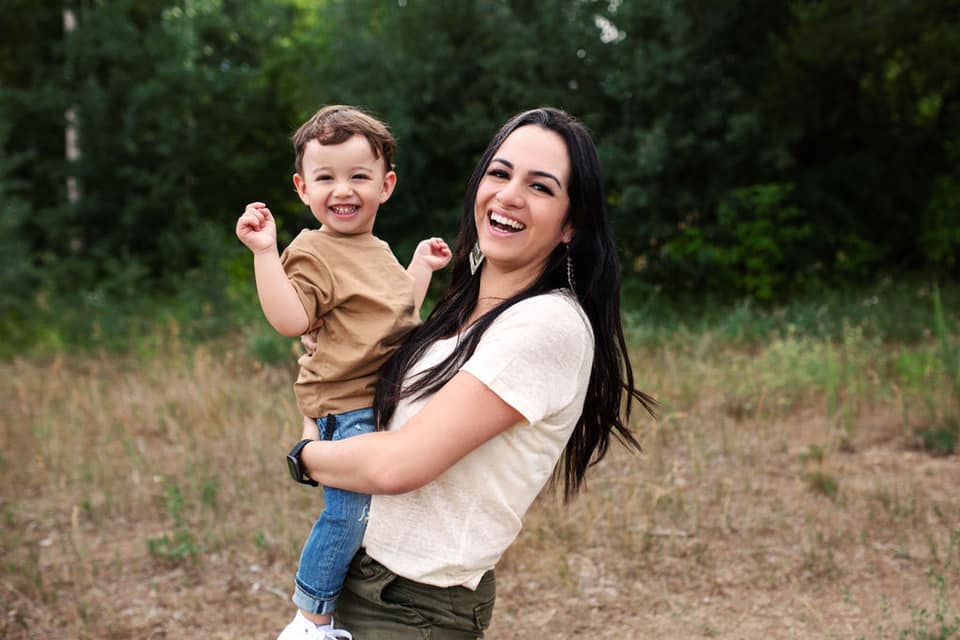
“Right now, when Jakob’s numbers are stable and his immunologist says he is doing OK, that he is fine, then we are buying time, we are good,” she said.
In response to her son’s diagnosis, Fernández launched a campaign to raise money for Jakob to receive gene therapy in Italy, but the company running the clinical trials put them on hold in October 2020.
Fernández is hoping that an ADA-SCID gene therapy trial on track to begin in California is an option for Jakob. The California Institute of Regenerative Medicine (CIRM) is expected to provide $5.8 million to the University of California Los Angeles to resume an ADA-SCID gene therapy trial that stalled several months ago. About 20 children wait for entrance into the trial and the first may be treated as early as June.
As a newborn, Jakob passed the first hurdle of surviving SCID – receiving an early diagnosis. Doctors sent Jakob directly to the neonatal intensive care unit (NICU) just after birth because he made a wheezing sound while breathing. They thought he had a paralyzed vocal cord. During that time, he underwent newborn screening (NBS). NBS for SCID had just been instituted in Alberta, Canada, where the family lives, in July 2019, and Jakob’s diagnosis occurred in August 2019, 10 days after his birth.
“We were lucky,” said Fernández of the timing of the NBS for SCID.
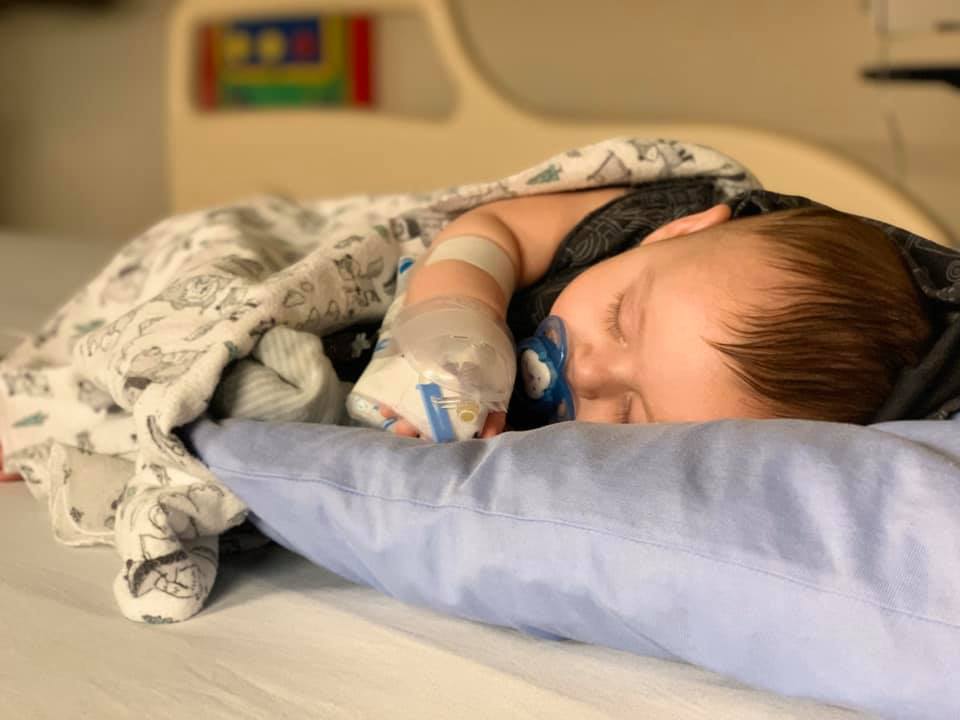
Medical staff placed Jakob immediately into isolation, and the Guziaks struggled to make sense of the diagnosis. His condition declined and he required oxygen to breathe, and a nasogastric (NG) tube, inserted through his nose and into his stomach, to eat.
The diagnosis took its toll on Jakob’s parents.
“We passed from parents who had a baby who looked very normal to being parents of a child who looked very, very sick. This was very difficult, at least for me, and I’m sure that it was for my husband Kamil too,” said Fernández.
Fernández experienced post-partum depression caused by seeing her son so sick, being in isolation at the hospital, and not being able to nurture him as she wanted.
“I feel like after giving birth I was just a person who was trying to figure out a way to fight for my kid, but my mind was not there yet,” said Fernández.
“I didn’t know exactly what to do because there was not enough information about his condition and every day would come with different news that was not exactly so positive, so it was really hard for me to try to separate my emotions and my crazy hormones to really do what I have to do as a mother.
“You need to take that band-aid off, and the sooner you start getting the knowledge you need, the faster you are fighting for your kid.”
She sought help with her mental health through therapy, which she continues to this day.
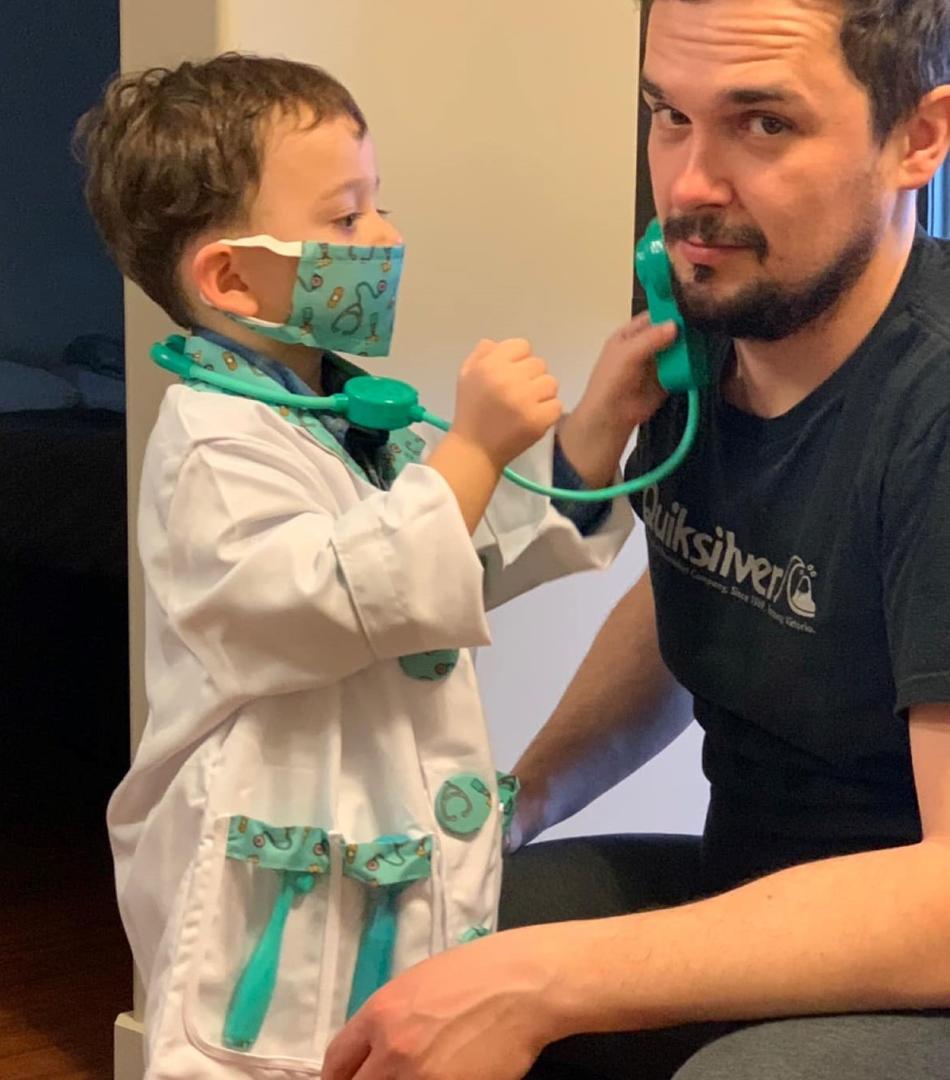
“It’s very traumatic. Your relationship with your husband can suffer, you are overprotective of your child, you are dealing with your fears, you have panic attacks when you go the store,” said Fernández. “I think therapy helps me keep my purpose.”
She also credits the nursing team at the hospital with supporting her in taking care of Jakob. Because she didn’t have a community of friends or family at the hospital, the nurses stepped in and led her through tasks like changing his diaper, bathing him, and dressing him.
“Thank God I had a beautiful team of nurses,” she said. “I would say that without these nurses today, I would not be the medical mom I am because they taught me a lot and that was a very positive thing while I was in the hospital.”
After three months in the hospital, Jakob returned home and continued supplemental oxygen and the NG tube until six months of age. A nurse attended daily to assist with care.
“He showed really good improvement little by little,” said his mom.
While Jakob held his own, Fernández’s health declined. She developed cervical cancer in December 2020 and underwent surgery, chemotherapy, and radiation to recover. She struggled to care for Jakob and doctors allowed friends and family into the home to help her. By May 2021, she had returned to her job as a pre-boarding officer at an airport.
“As a person with cancer, I have my fears. Am I going to survive this? The only thing I’m thinking is to push him to safety before I go down,” said Fernández.
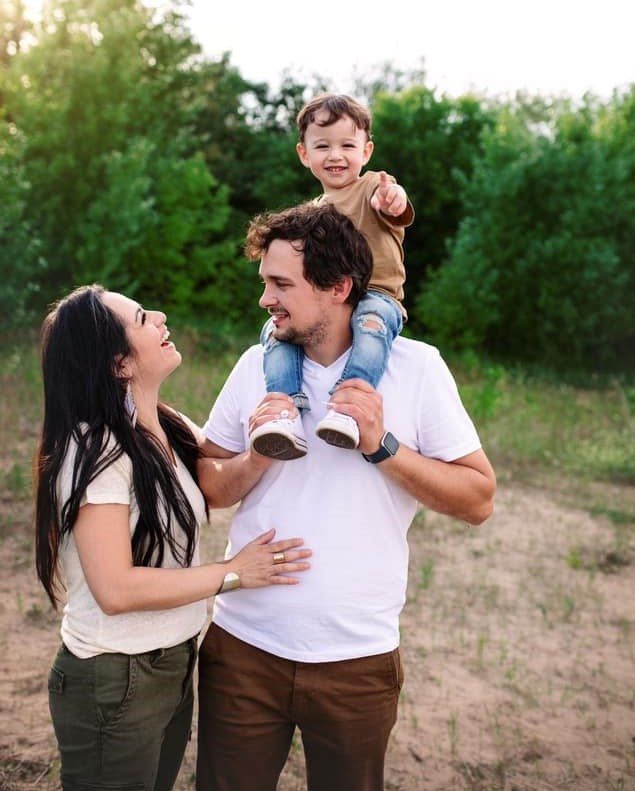
Determined to dedicate herself to creating awareness for SCID, Fernández recently took on hosting a podcast called “A Slice of PI,” funded by the pharmaceutical industry and presented by the Canadian Immunodeficiencies Patient Organization (CIPO). She is hosting season two of the bi-weekly podcast, which began in December 2021 and features 13 episodes total.
During “A Slice of PI,” Fernández interviews experts and parents of children with PI to discuss topics related primarily to SCID. Some of the topics include her personal experience as a parent of a child with SCID, NBS in Canada, diagnosis, medical trauma, plasma, enzyme replacement therapy, stem cell donation, gene therapy, and mental health.
“Why do I think this podcast is so important? When you join this community of sick children and courageous parents, you comprehend that your voice is needed to keep fighting for many children with PI conditions to help educate, to help create awareness, and to inspire others that don’t have PI to believe in our fight,” said Fernández in the first episode of the podcast.
“'Slice of PI’ is a sweet and interesting space where we can connect with the wisdom of our guests and the kind touch of the caregivers’ experiences.”
Related resources
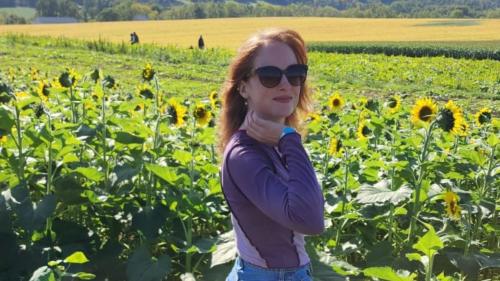
Thirty-year-old with APS type 1 advocates for her community
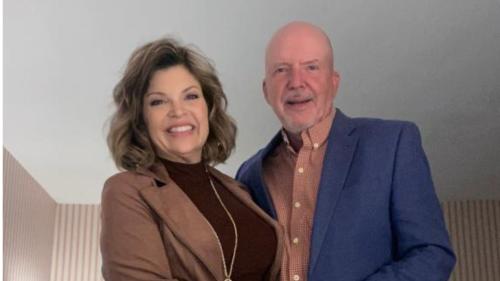
Susan finds "priceless" support system in the Immune Deficiency Foundation
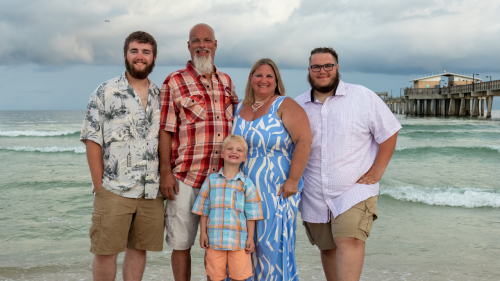
Mother details harrowing journey to son's diagnosis and relief of finding the PI community
Sign up for updates from IDF
Receive news and helpful resources to your cell phone or inbox. You can change or cancel your subscription at any time.





The Immune Deficiency Foundation improves the diagnosis, treatment, and quality of life for every person affected by primary immunodeficiency.
We foster a community that is connected, engaged, and empowered through advocacy, education, and research.
Combined Charity Campaign | CFC# 66309

